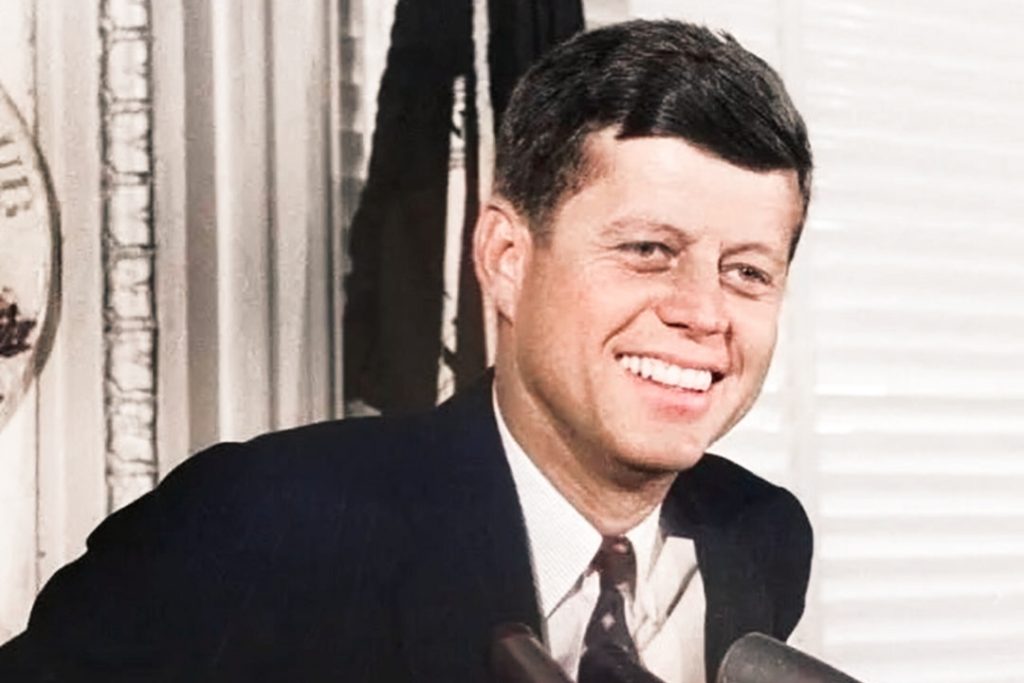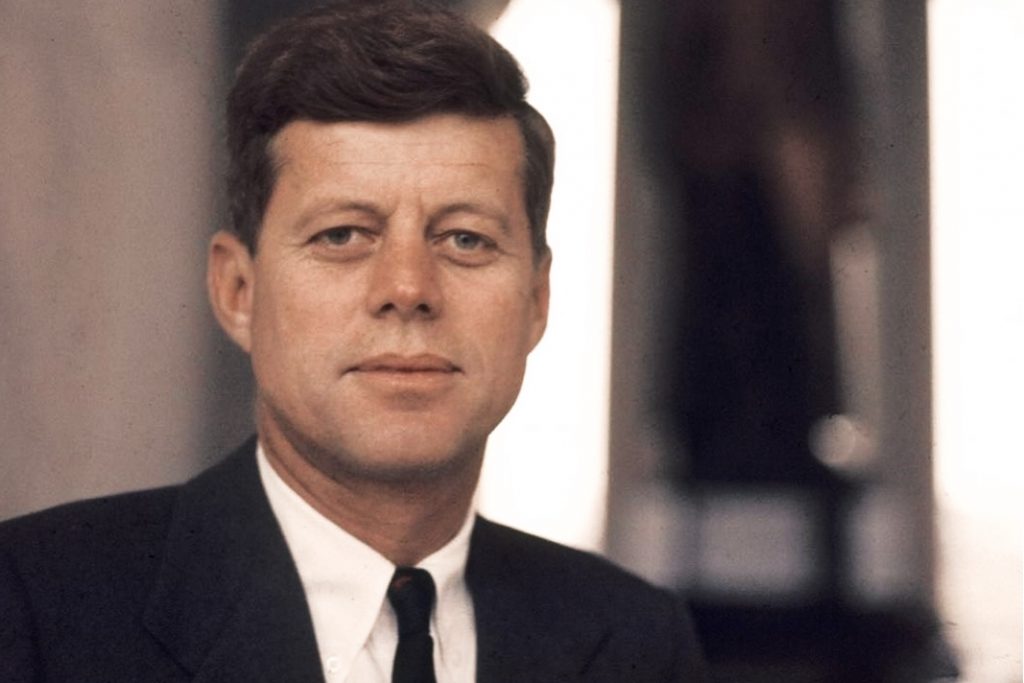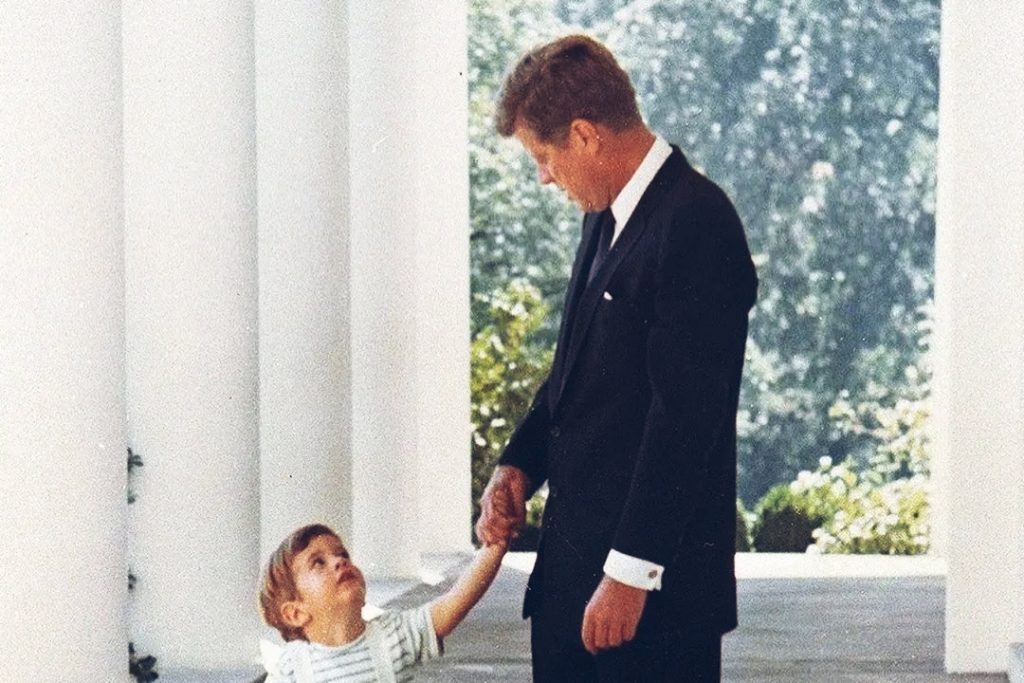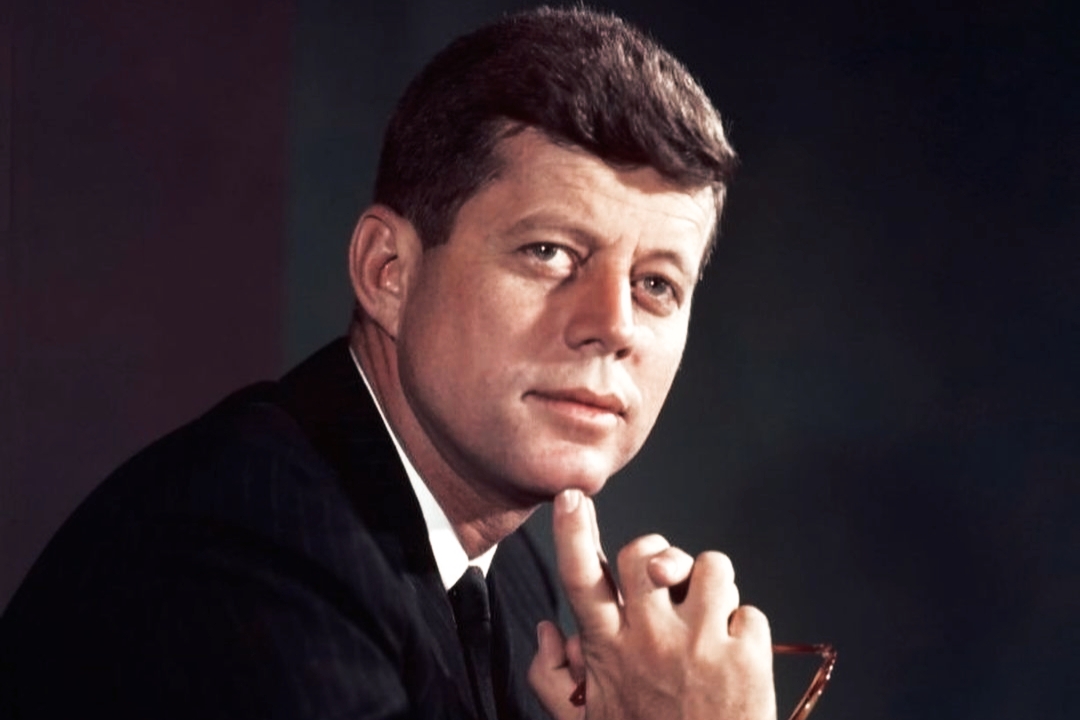John F. Kennedy, the 35th President of the United States, holds a unique and enduring place in the annals of American history. Known for his charismatic leadership, eloquent speeches, and ambitious vision for the nation, John F. Kennedy’s presidency was tragically cut short, leaving behind a legacy that continues to inspire and intrigue millions around the globe.
This article delves deep into the life of John F. Kennedy, exploring his early years, political career, presidency, and the enduring impact he left on the world.
Early Life and Family Background
Born on May 29, 1917, in Brookline, Massachusetts, John Fitzgerald Kennedy was the second of nine children in the prominent and influential Kennedy family. His father, Joseph P. Kennedy Sr., was a wealthy businessman and diplomat, while his mother, Rose Fitzgerald Kennedy, was the daughter of a Boston mayor. John F. Kennedy was raised in a competitive and ambitious household where excellence was both expected and celebrated.
The Kennedy family’s wealth and connections afforded John F. Kennedy a privileged upbringing. He attended prestigious schools, including the Choate Rosemary Hall boarding school in Connecticut, where his wit and charm began to shine. Despite struggling with various health issues throughout his life, including chronic back pain and Addison’s disease, John F. Kennedy developed a tenacious spirit and a love for learning that would later define his political career.
Education and Worldview

John F. Kennedy’s education played a pivotal role in shaping his worldview. After graduating from Choate, he enrolled at Harvard University, where he majored in government and international relations. His senior thesis, Why England Slept, analyzed Britain’s unpreparedness for World War II and was later published as a book, garnering critical acclaim.
During his time at Harvard, John F. Kennedy traveled extensively, gaining firsthand insights into global politics. His travels to Europe, the Soviet Union, and the Middle East deepened his understanding of international affairs and fueled his ambition to enter public service.
Military Service and Heroism
John F. Kennedy’s sense of duty led him to serve in the U.S. Navy during World War II. As a lieutenant, he commanded PT-109, a patrol torpedo boat, in the Pacific theater. In 1943, his boat was struck by a Japanese destroyer, leaving him and his crew stranded. Displaying extraordinary courage and leadership, John F. Kennedy led his crew to safety, even towing an injured sailor by gripping a strap in his teeth as he swam for hours.
This act of heroism earned John F. Kennedy the Navy and Marine Corps Medal, further solidifying his reputation as a brave and selfless leader. The experience also deepened his resolve to serve his country in a broader capacity, laying the groundwork for his future political career.
Entry into Politics

John F. Kennedy
In 1952, John F. Kennedy set his sights on the U.S. Senate, challenging incumbent Republican Henry Cabot Lodge Jr. Despite being relatively young and inexperienced, he ran a highly effective campaign, emphasizing his war hero status and vision for the future. His victory marked the beginning of his rise to national prominence.
During his time in the Senate, John F. Kennedy focused on issues such as labor rights, education, and foreign policy. He also authored Profiles in Courage, a Pulitzer Prize-winning book that celebrated political leaders who demonstrated integrity and bravery in the face of adversity.
Marriage and Family Life
In 1953, John F. Kennedy married Jacqueline Bouvier, a sophisticated and cultured young woman who would later become an iconic First Lady. Their marriage was seen as a union of glamour and intellect, capturing the imagination of the American public. Together, they had four children, though two—Arabella and Patrick—died in infancy. Their surviving children, Caroline and John F. Kennedy Jr., became prominent figures in their own right.
The Road to the Presidency

By the late 1950s, John F. Kennedy had emerged as a leading figure in the Democratic Party. His youth, charm, and ability to connect with voters made him a strong contender for the presidency. In 1960, he announced his candidacy and faced a tough primary battle.
John F. Kennedy’s campaign was groundbreaking in many ways. He skillfully utilized television, a relatively new medium, to reach voters. His televised debates with Republican opponent Richard Nixon showcased his poise and eloquence, earning him widespread admiration.
On November 8, 1960, John F. Kennedy narrowly defeated Nixon to become the youngest man elected President of the United States and the first Roman Catholic to hold the office. His inauguration on January 20, 1961, was marked by his famous speech in which he declared, “Ask not what your country can do for you—ask what you can do for your country.”
Presidency: Achievements and Challenges
John F. Kennedy’s presidency, though brief, was marked by significant achievements and profound challenges.
Domestic Policies
On the domestic front, John F. Kennedy championed civil rights, economic growth, and social progress. He proposed ambitious programs to combat poverty, improve education, and advance space exploration. His administration laid the groundwork for the Civil Rights Act of 1964, which would later be signed into law by his successor, Lyndon B. Johnson.
The Space Race
One of John F. Kennedy’s most enduring legacies was his commitment to the space race. In a historic speech at Rice University in 1962, he declared the United States’ goal of landing a man on the moon by the end of the decade. His vision galvanized the nation’s scientific community and culminated in the Apollo 11 moon landing in 1969.
Foreign Policy and the Cold War
John F. Kennedy faced several critical foreign policy challenges during his presidency. The failed Bay of Pigs invasion in 1961, aimed at overthrowing Fidel Castro in Cuba, was a major setback. However, he redeemed his reputation during the Cuban Missile Crisis in 1962, when he successfully negotiated the removal of Soviet missiles from Cuba, averting a potential nuclear war.
His administration also established the Peace Corps, an initiative aimed at promoting international development and fostering goodwill.
Tragic Assassination
On November 22, 1963, John F. Kennedy was assassinated while riding in a motorcade in Dallas, Texas. His death shocked the nation and the world, leaving an indelible mark on American history. The assassination, and the subsequent investigation by the Warren Commission, remain subjects of extensive debate and speculation.
Legacy of John F. Kennedy
John F. Kennedy’s legacy transcends his short time in office. His vision for a better America, his commitment to public service, and his ability to inspire hope continue to resonate. He is remembered as a leader who dared to dream big and challenged others to do the same.
The John F. Kennedy Presidential Library and Museum in Boston stands as a testament to his life and achievements, preserving his memory for future generations. His famous words, “Let every nation know… that we shall pay any price, bear any burden, meet any hardship… to assure the survival and the success of liberty,” remain a rallying cry for those who believe in the power of leadership and the promise of democracy.
Conclusion
John F. Kennedy was more than just a president; he was a symbol of hope and progress. His life, though tragically cut short, serves as a powerful reminder of the potential of visionary leadership. Today, more than half a century after his death, John F. Kennedy continues to inspire new generations to dream, to serve, and to lead. His legacy is a beacon of light, illuminating the path toward a better, more just world.

